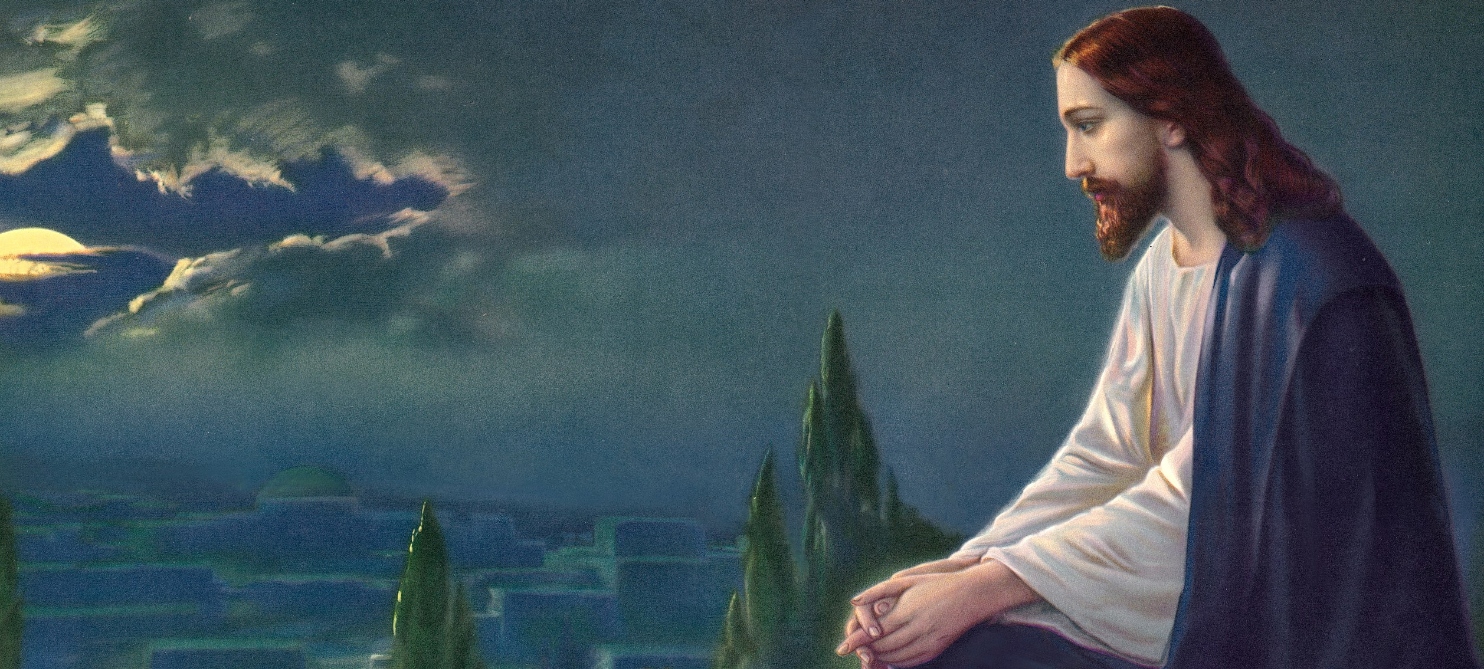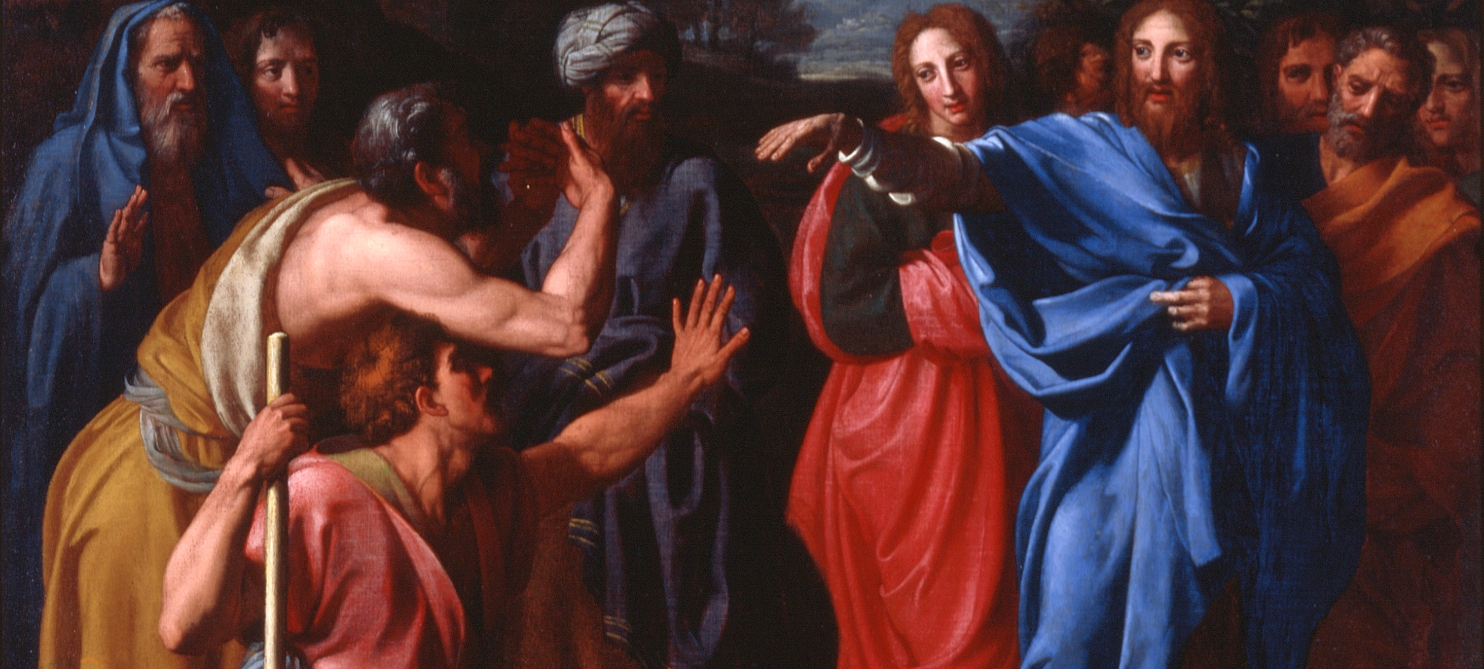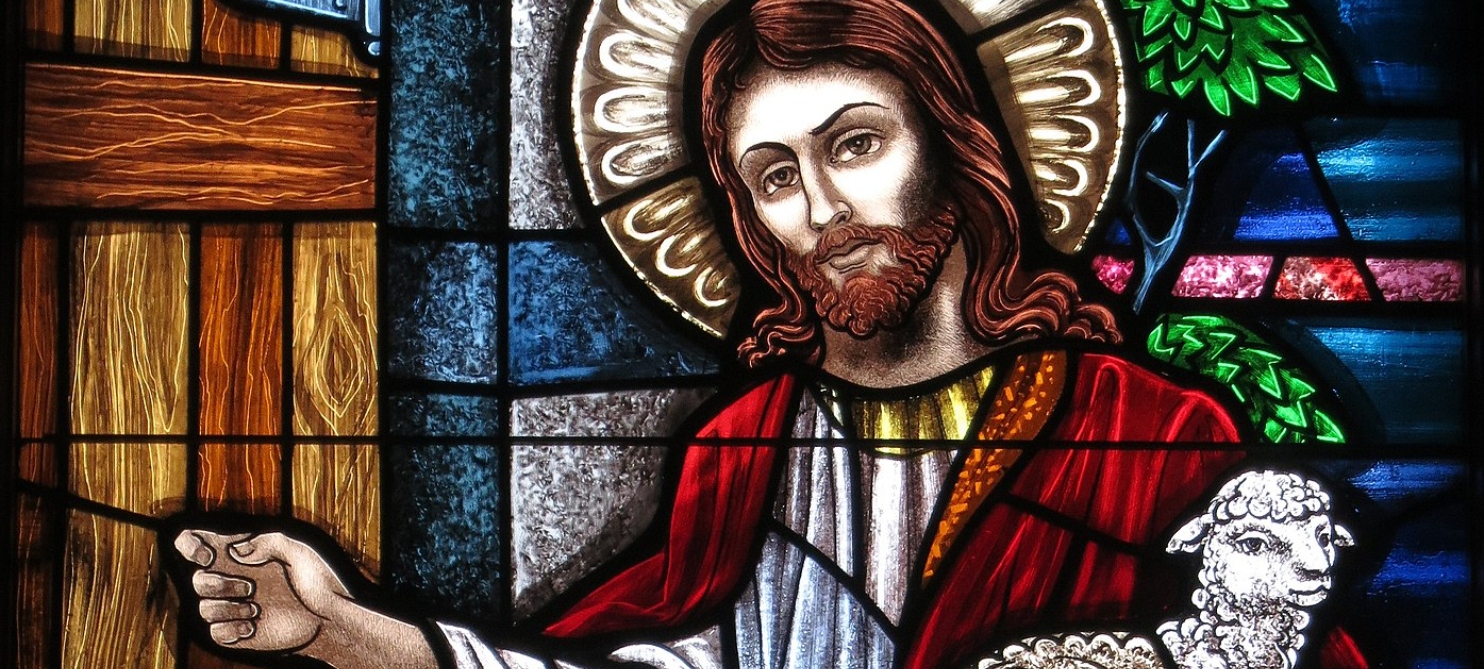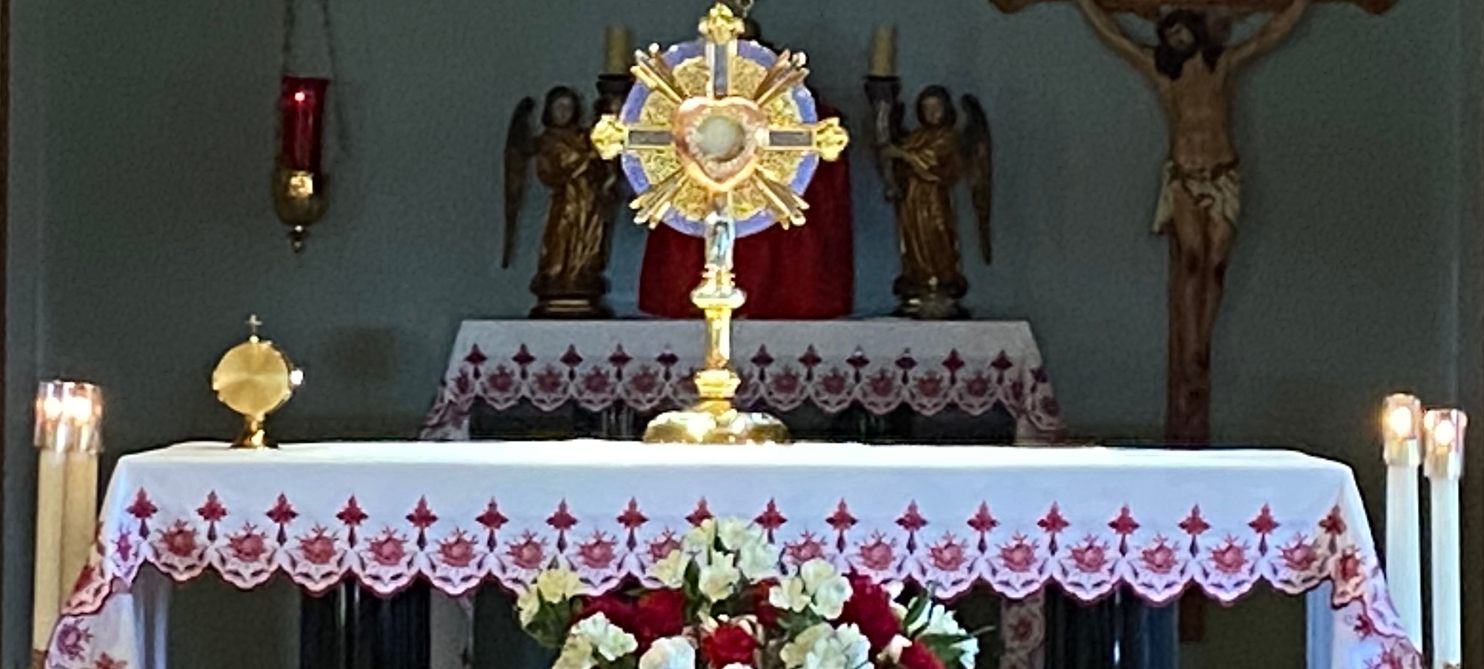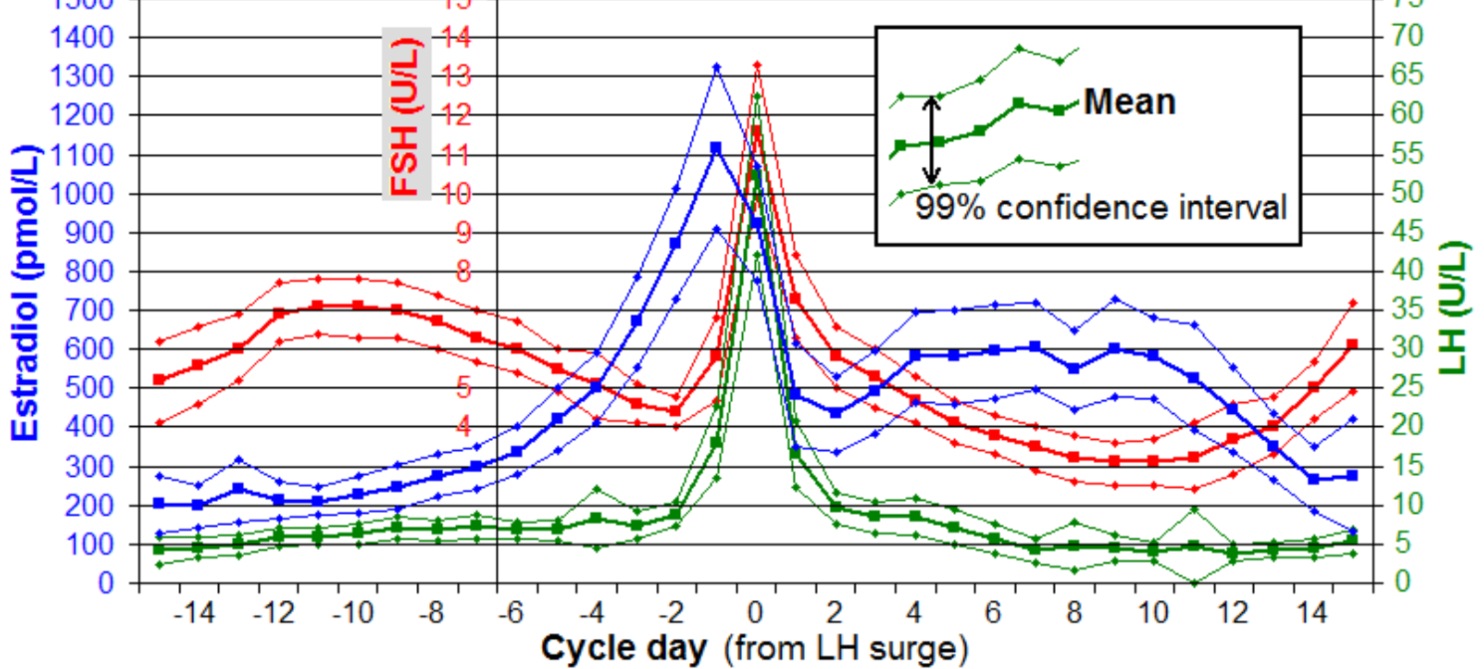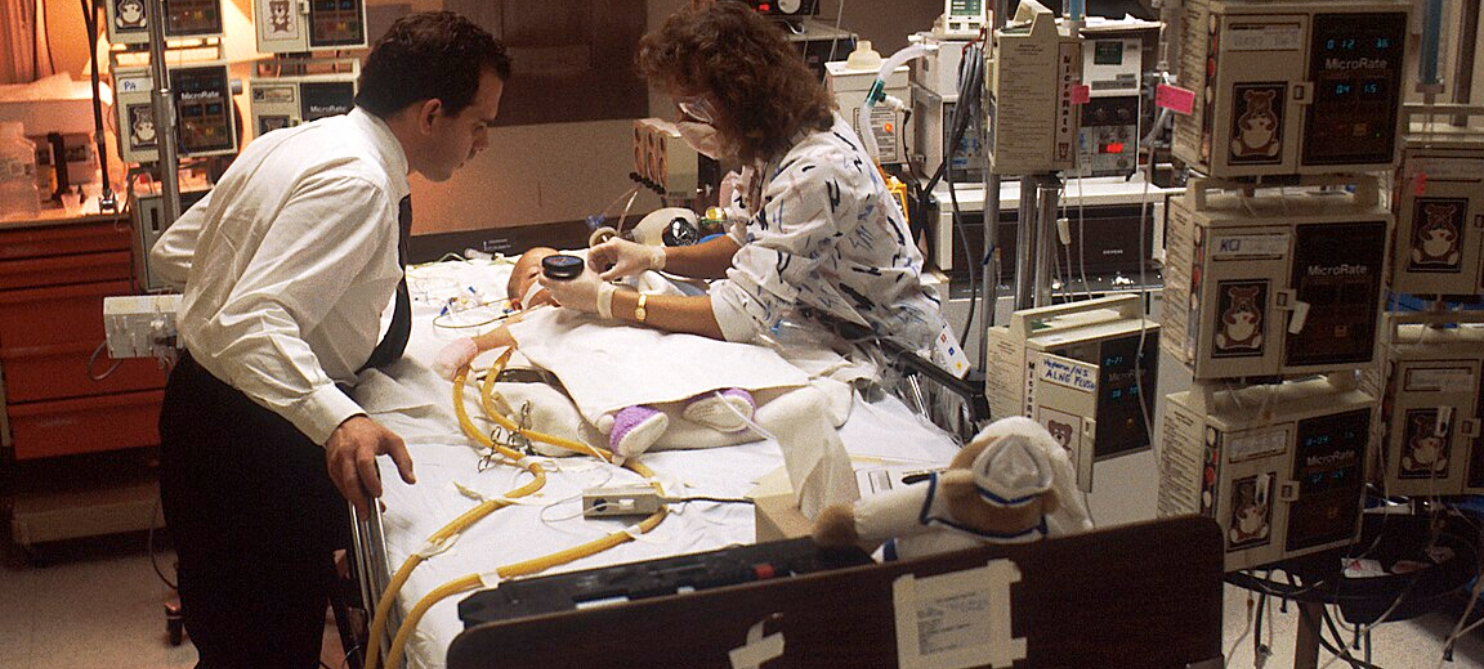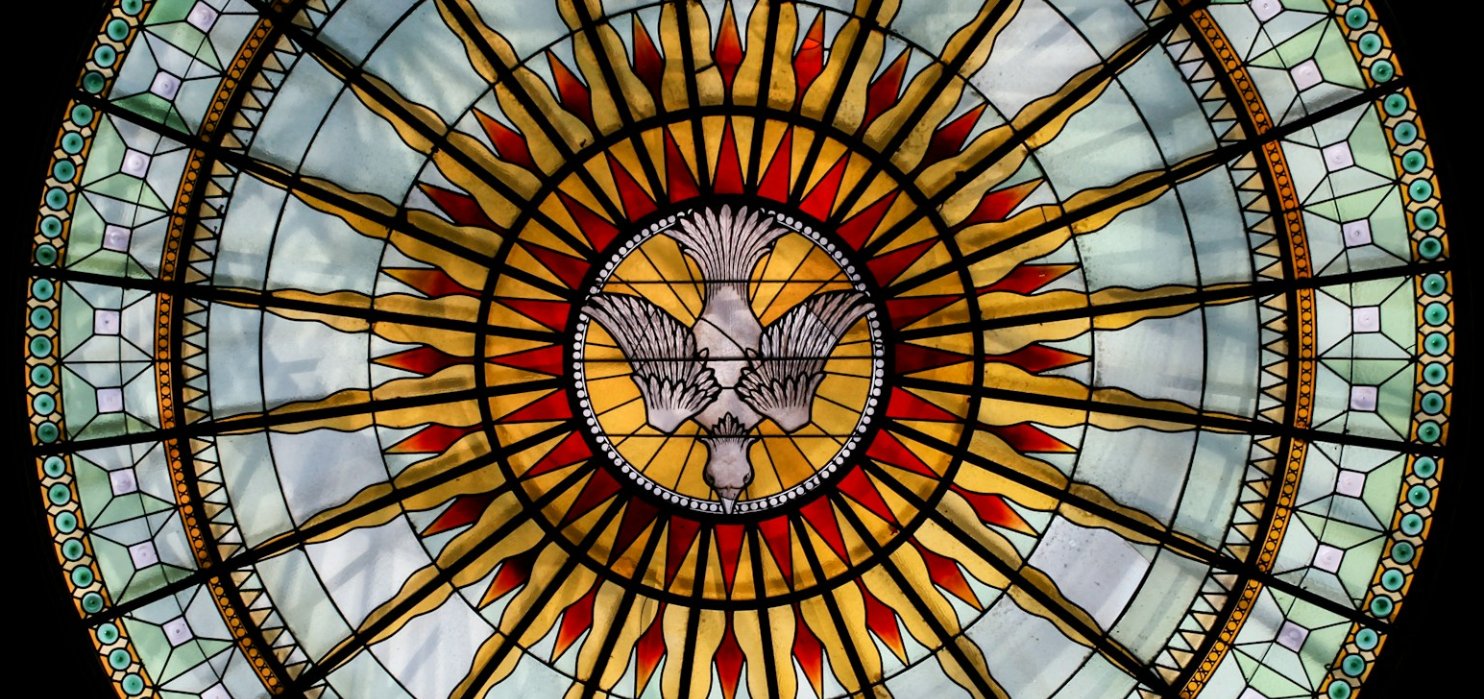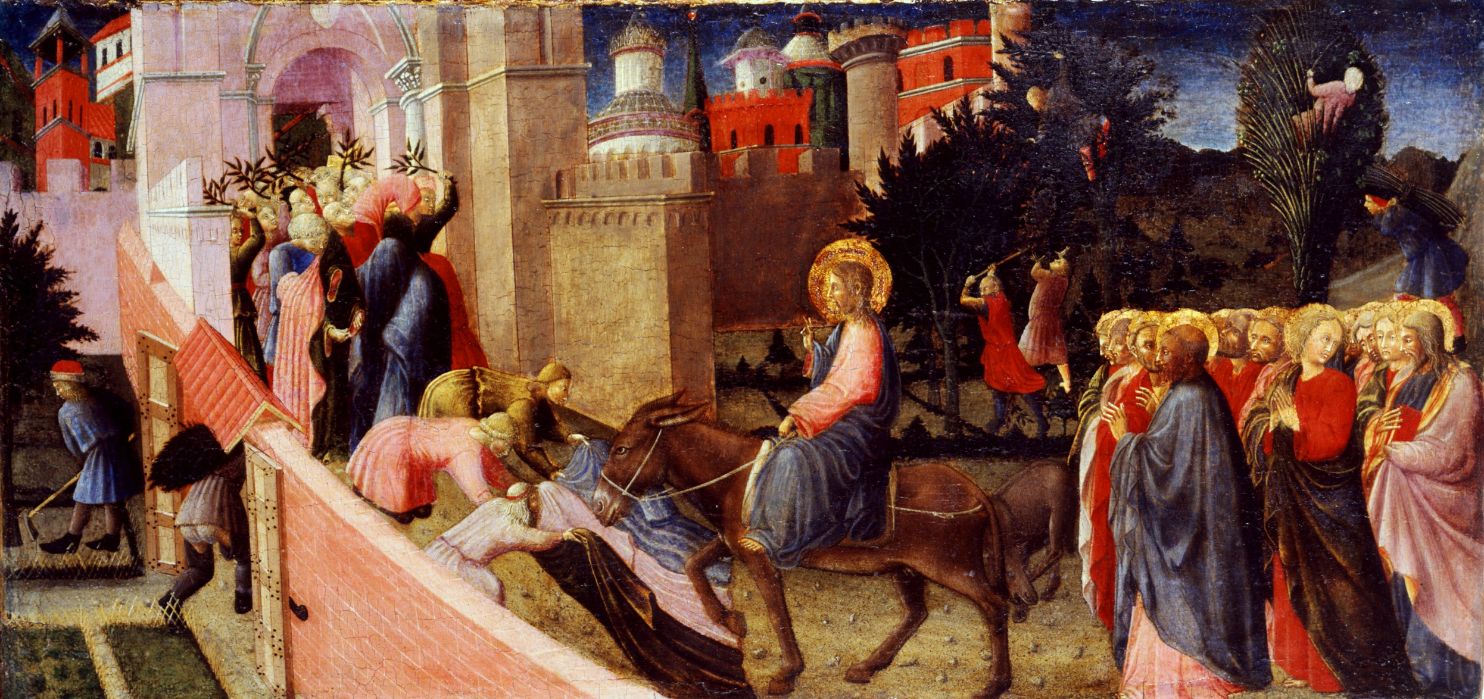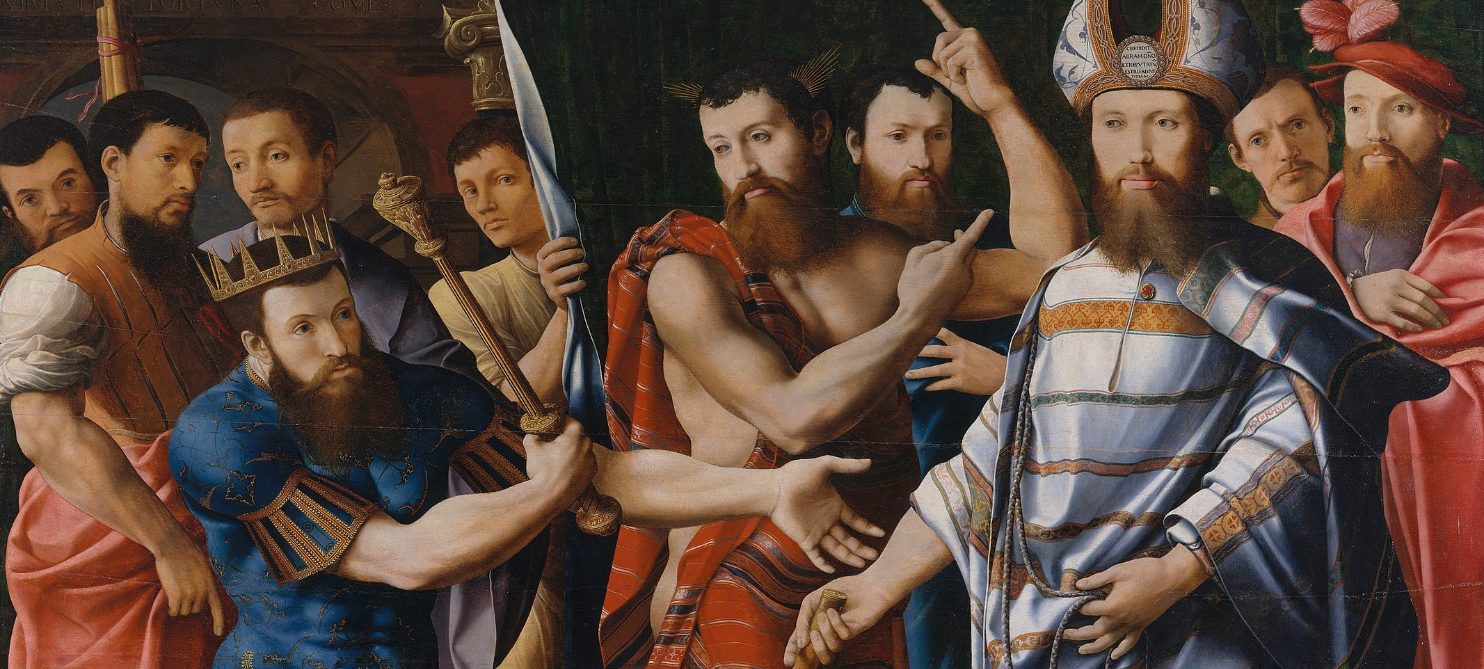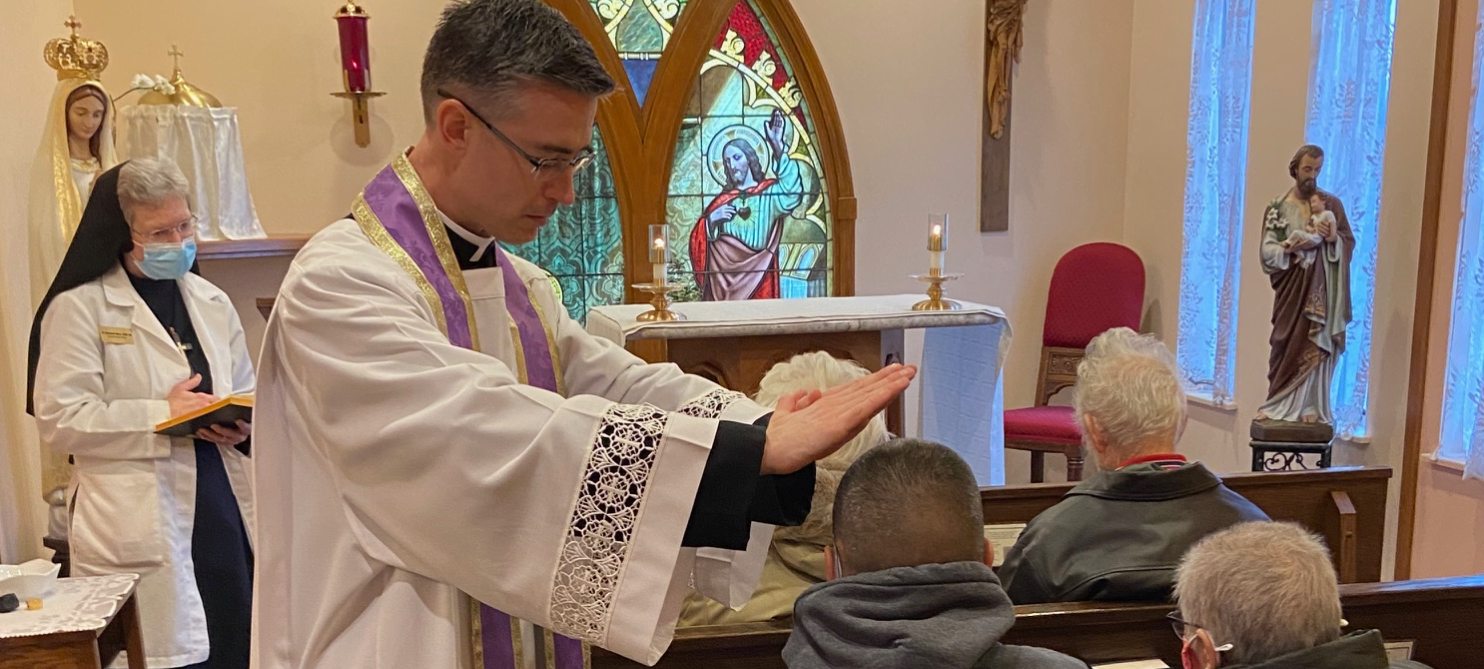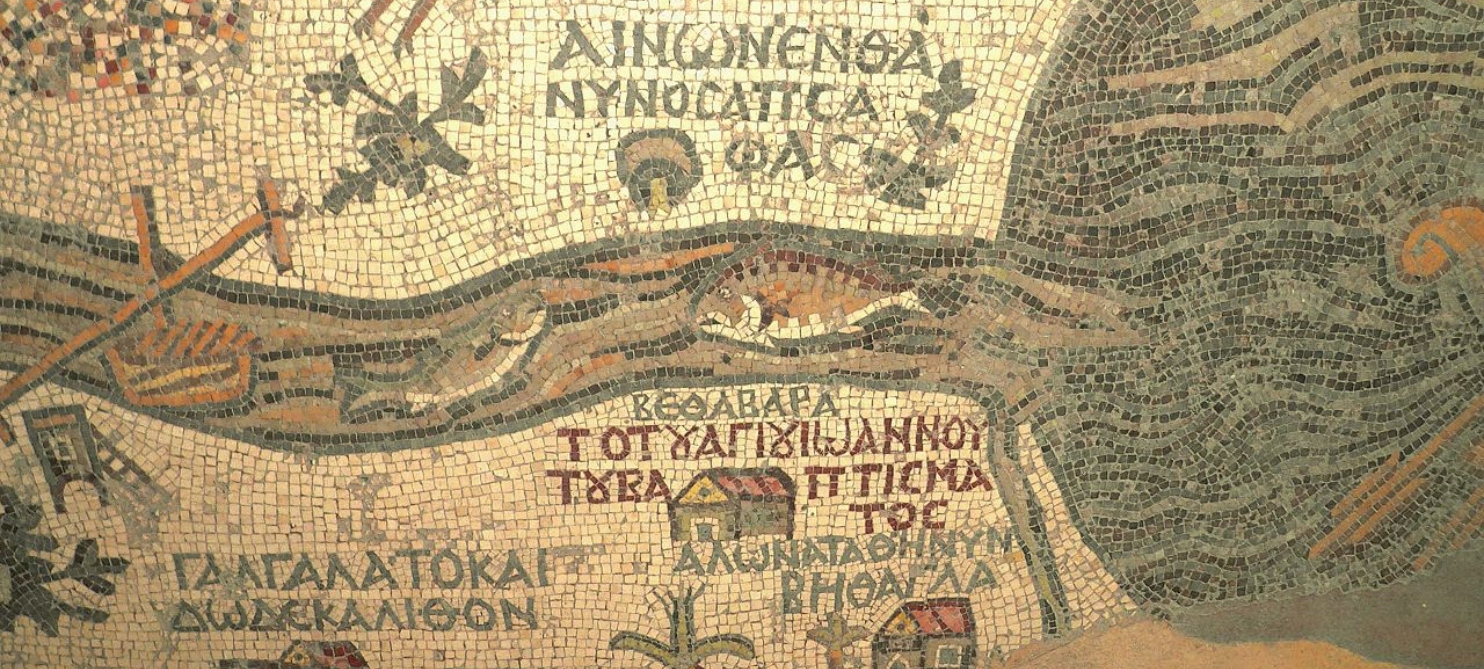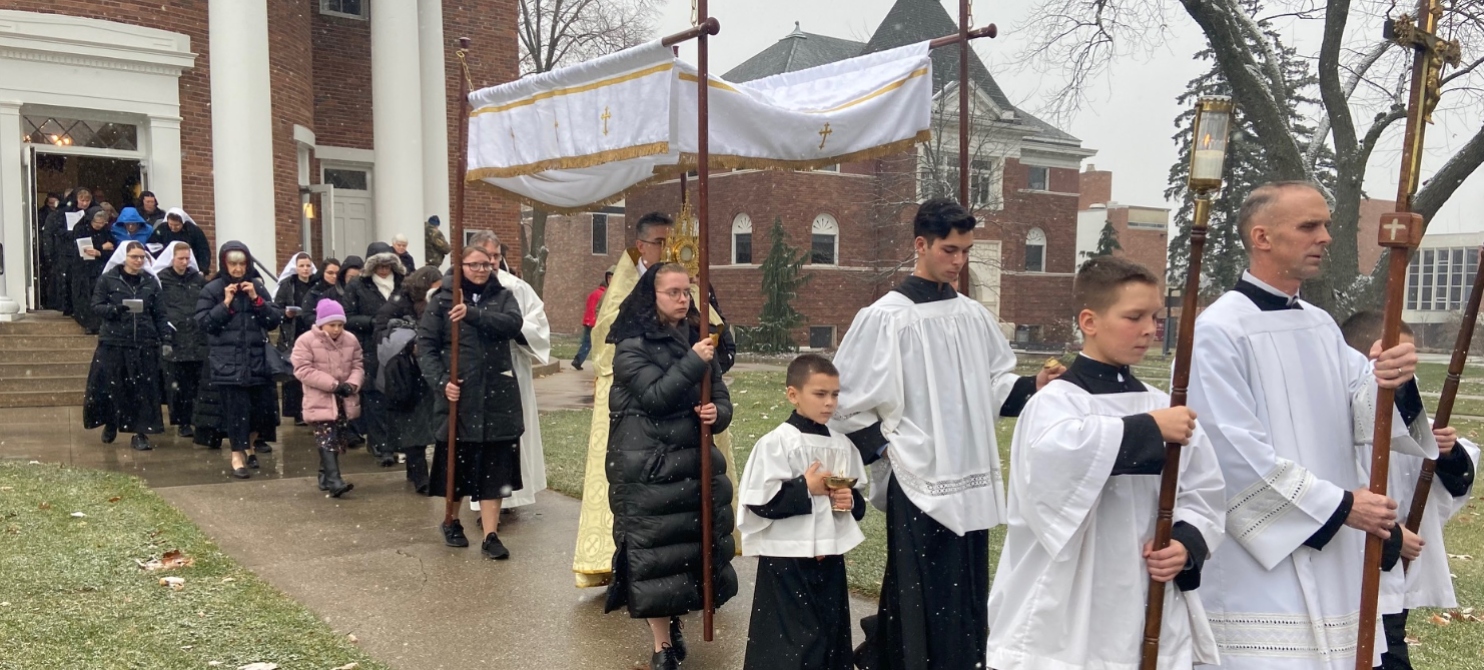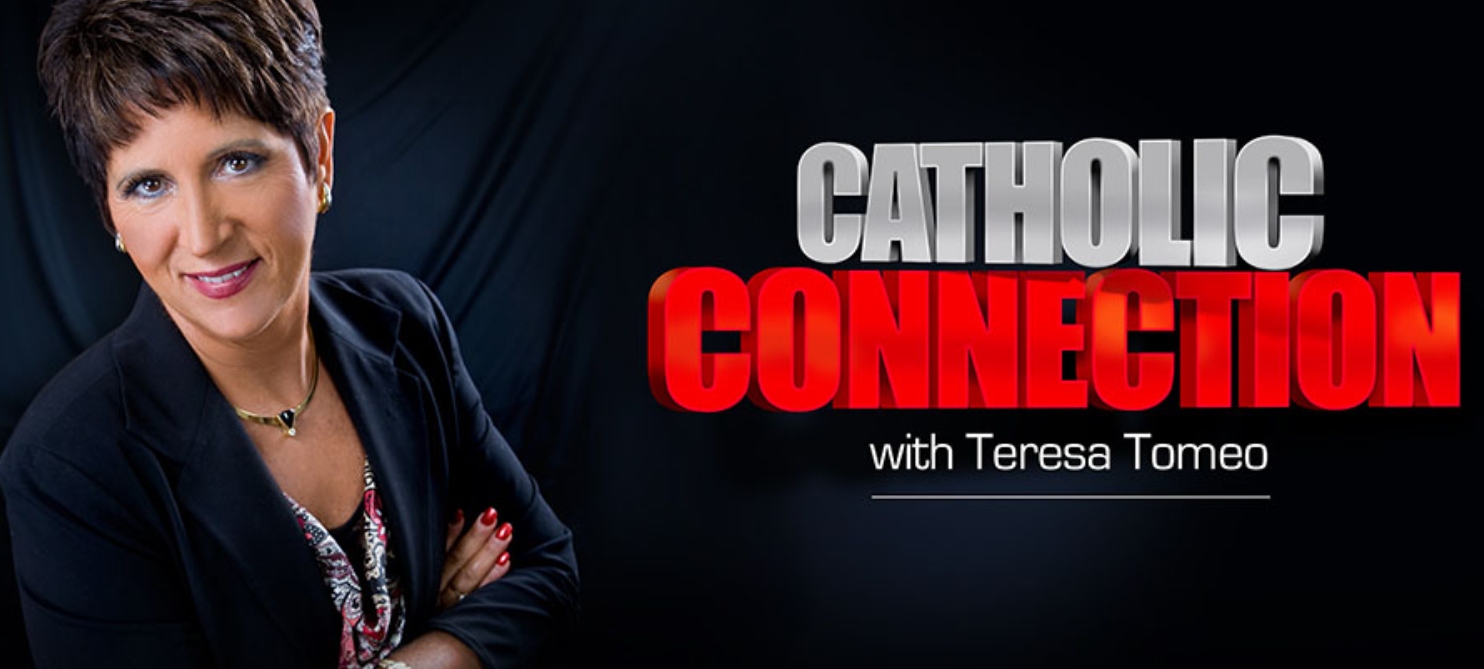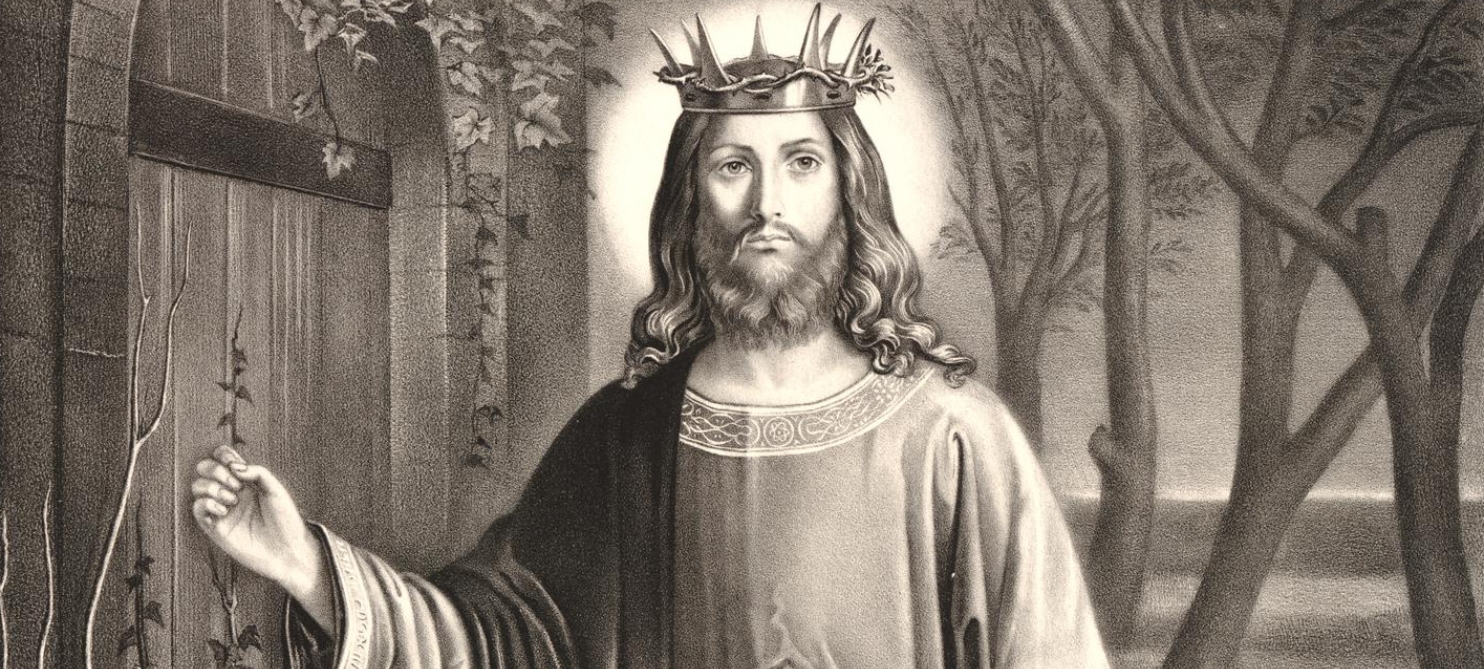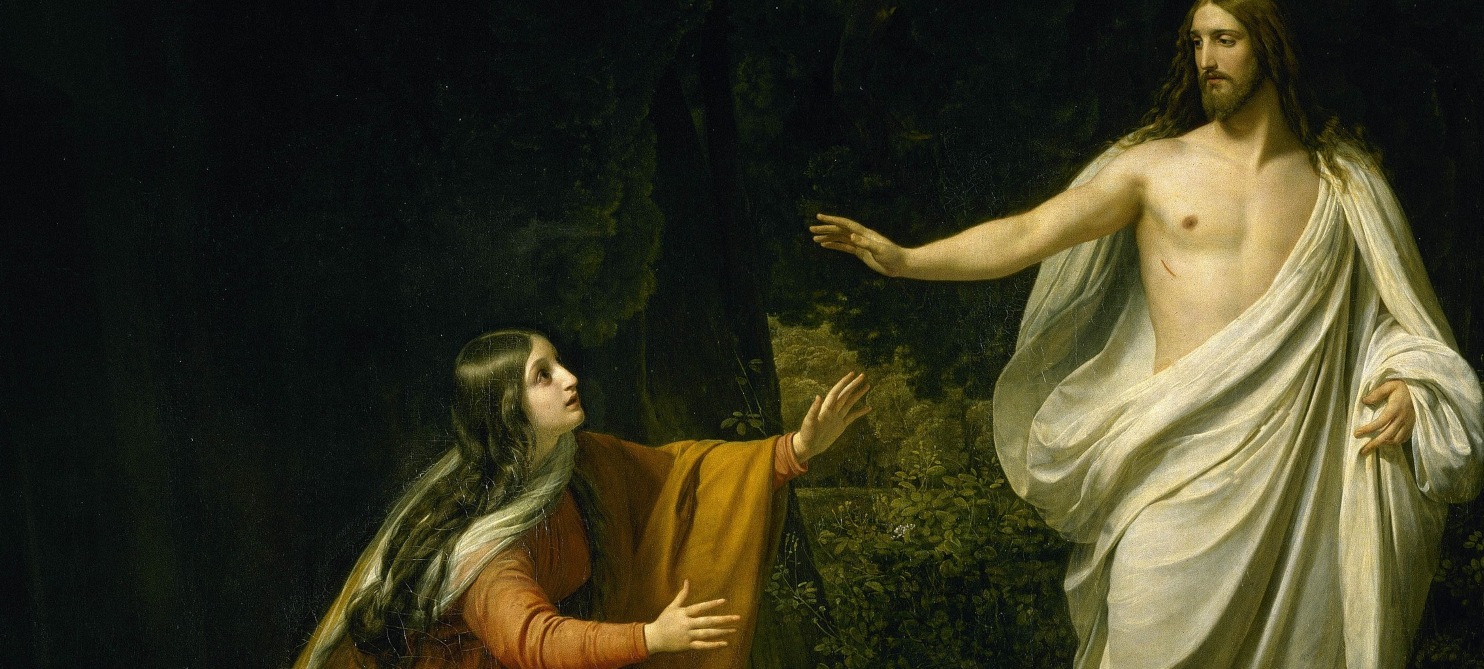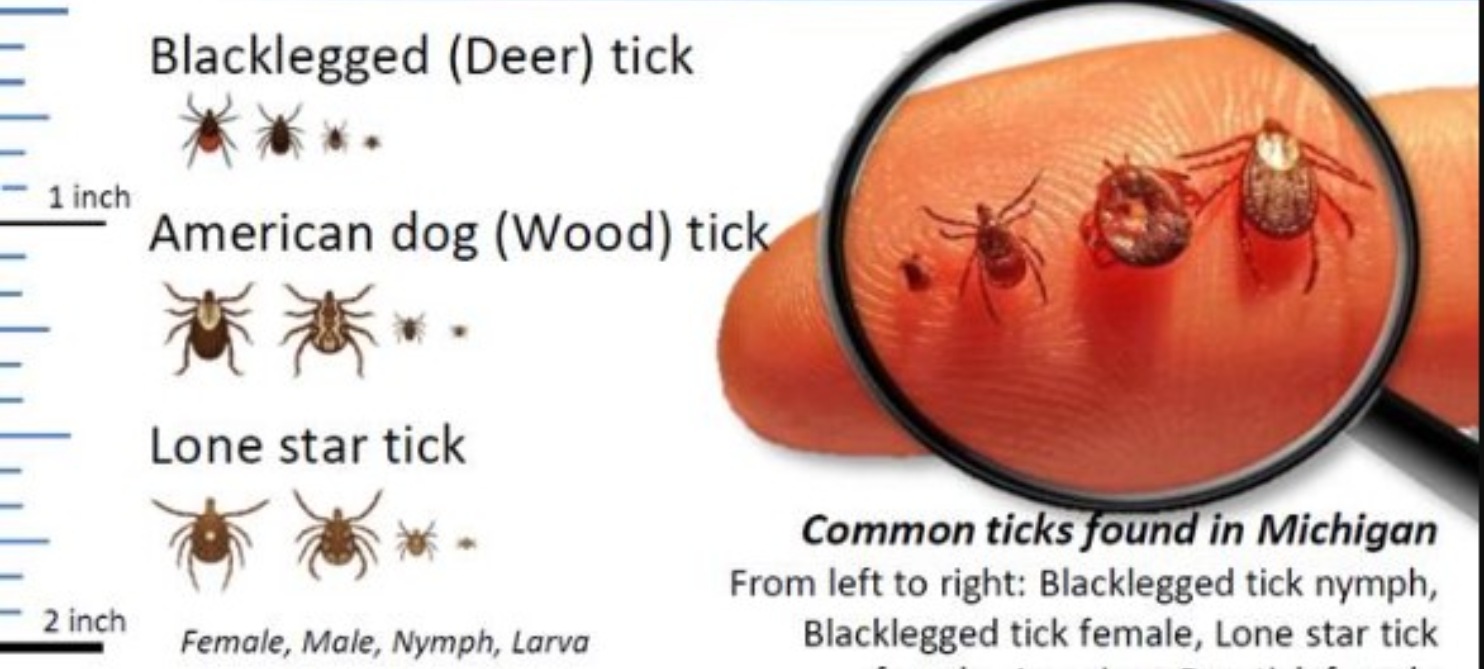“Jesus came to make a way for us to heaven through the veil of His flesh”
This quote comes from a passage from Saint Athanasius that has been with me over these past months. Saint Athanasius, reflecting on the structure of the Jerusalem temple, writes about the dividing wall between section that belonged exclusively to the Jews and the part that was open to the Gentiles. Taking the image further, he says that the middle wall of partition was broken down precisely by Christ’s crucifixion. Because that wall is now gone, each one of us, Jew and Gentile alike , can receive His saving love. I am particularly struck by the image of Jesus’ outstretched arms, “that he might draw His ancient people with one” and each of us with the other to join both together in Himself.
In another passage from scripture from St. John’s gospel (12:32), Jesus says, “I, if I be lifted up, will draw all men to myself,” and a little further on, “I am the way, the truth, and the life (14:6).” Thinking about these two verses in tandem, Saint Athanasius writes, “He came to make ‘a way’ for us up to heaven…‘through the veil, that is to say, His flesh.’” That latter phrase actually comes from Saint Paul—you can see how Saint Athansius has the texts of the New Testament at his fingertips! Saint Paul wrote that in the letter to the Hebrews (10:20). The word “veil” stood out to me. When I looked up the Greek word for it, καταπετάσματος (katapetasmatos), it is same word that is used for curtain, but it refers to the inner veil of the temple (or tabernacle) that separated the temple into two parts. One part was where the worshippers offered sacrifice; the other was called the Holy of Holies and held the Ark of the Covenant. Only once a year could the high priest pass through that veil in order to enter into the Holy of Holies. Saint Athanasius is connecting that separating veil with Jesus; Jesus draws us through His flesh, that is in communion with Him in His body, to the Father. Through Jesus, we pass through the veil and enter the Holy the Holies. In Hebrews 6:19 Saint Paul writes, “We have this hope as an anchor for life, both sure and steadfast – a hope that enters the inner shrine behind the veil…” using the same word. What a privilege it is to be drawn by Jesus into these mysteries!
CLICK link for full excerpt from On the Incarnation by Saint Athanasius: https://www.newadvent.org/fathers/2802.htm
Chapter 4 “The Death of Christ“Section 25:…
But if any honest Christian wants to know why He suffered death on the cross and not in some other way, we answered thus: in no other way was it expedient for us, indeed the Lord offered for our sakes the one death that was supremely good. He had come to bear the curse that lay on us; and how could He “become a curse“ otherwise than by accepting the accursed death? And that death is the cross, for it is written “Cursed is everyone that hangs on a tree.“ Again, the death of the Lord is the ransom of all, and by it “the middle wall of partition“ is broken down and the call of the Gentiles comes about. How could He have called us if he had not been crucified, for is only on the cross that a man dies with outstretched arms? Here, again, we see the fitness of his death and of those outstretched arms: it was that He might draw His ancient people with one and the Gentiles with the other, and join both together in himself. Even so, he foretold the manner of his redeeming death, “I, if I be lifted up, will draw all men unto Myself.“… But the Lord came to overthrow the devil and to purify the air and to make “a way“ for us up to heaven, as the apostle says, “Through the veil, that is to say, His flesh.” This had to be done through death, and by what other kind of death could it be done, saved by a death in the air, that is, on the cross? Here again, you see how right and natural it was that the Lord should suffer thus; for being thus “lifted up,“ he cleanse the air from all the evil influences of the enemy. “I beheld Satan as lightning falling,“ He says; and thus He re-opened the road to heaven, saying again, “lift up your gates, O ye princess, and be ye lift up, ye everlasting doors.” For it was not the Word Himself Who needed an opening of the gates, He being Lord of all, nor was any of His works closed to their Maker. No, it was we who needed it, we whom He Himself bore in His own body – that body which He first offered to death on behalf of all, and then made through it a path to heaven.
Click this link for the full text of On the Incarnation from The New Advent site: https://www.newadvent.org/fathers/2802.htm
————————————————————————-
Athanasius, and John Behr. “Chapter 4 ‘The Death of Christ‘ Section 25:” Essay. In On the Incarnation. Yonkers, NY: St Vladimir’s Seminary Press, 2011.


